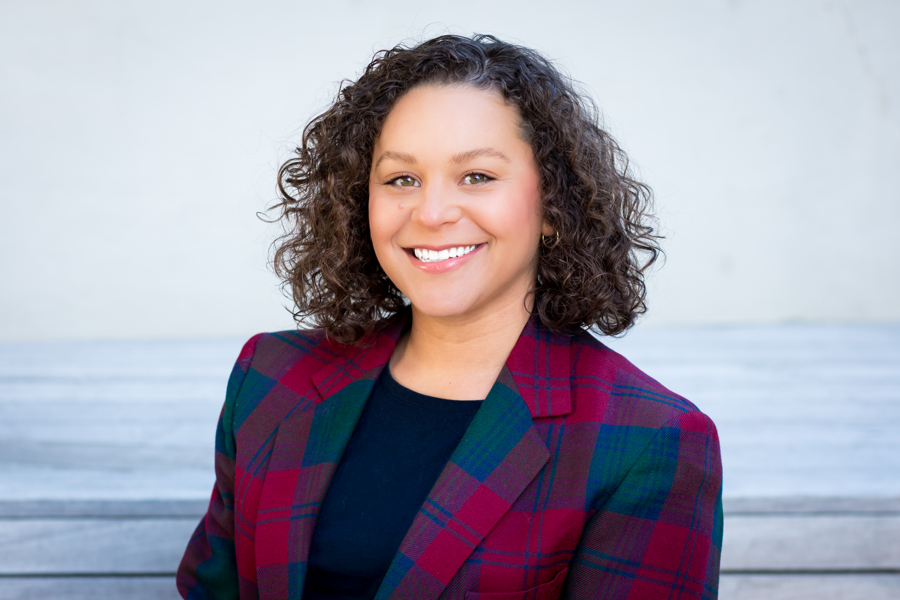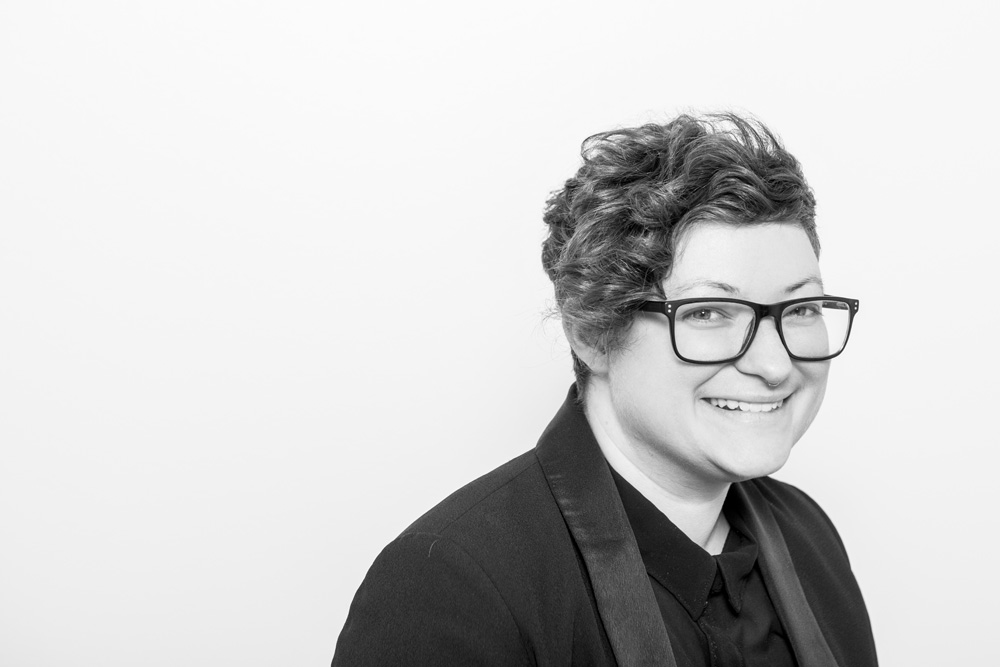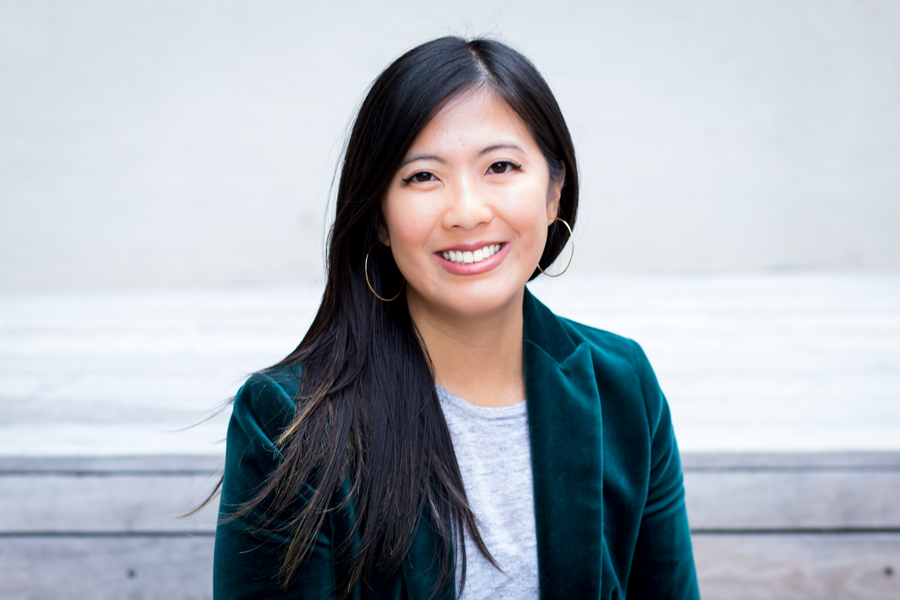Abortion rights, women of color, and LGBTQIA+ people are under attack. Pledge to join us in fighting for gender justice.
These Are Our Favorite Feminist Horror Movies. (Yes, There Is Such a Thing).
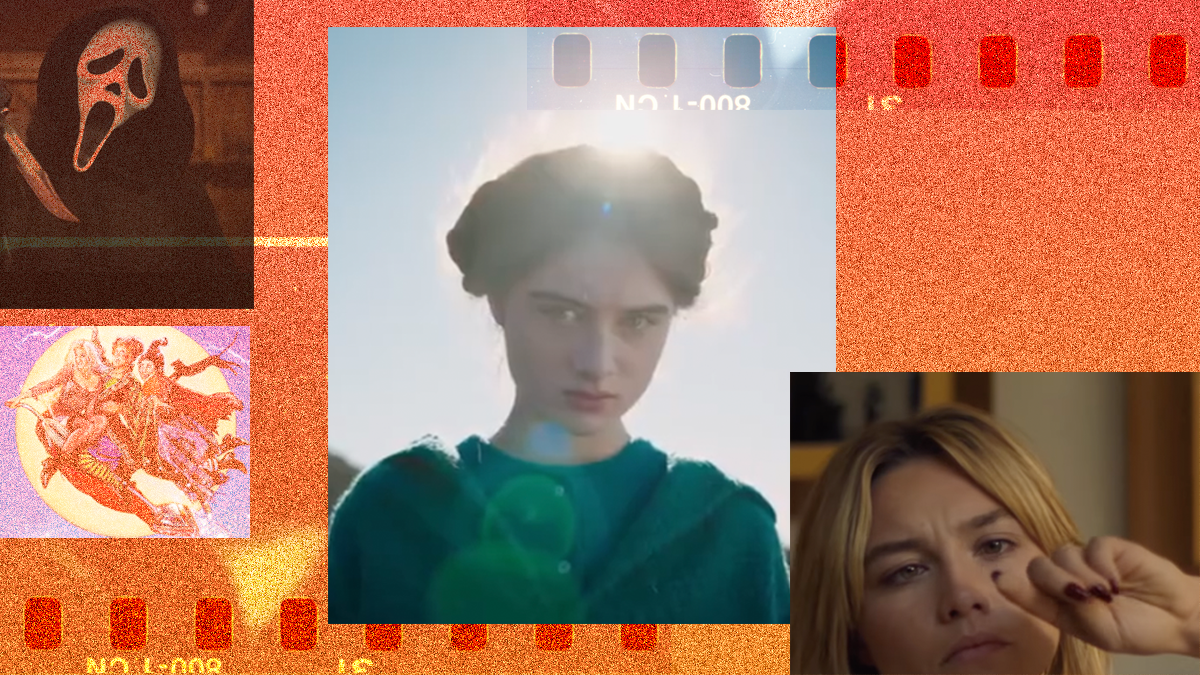
Hocus Pocus
Shreya Bandyopadhyay
I am not a horror movie girlie. Slashing throats? Too messy. Burying yourself alive? Just buy a weighted blanket. Digging a grave? Come on, no one has that much upper body strength. Instead, as each Halloween rolls around, it’s Hocus Pocus season.
Unlike traditional horror movies where women are either the bait or the prey, the Sanderson Sisters are unlikely protagonists in their own right—as long as you ignore the part where they eat children. Because something about the Sanderson Sisters girlbossing their way through modern-day Salem spoke to me as a 7-year-old and now, at 22, speaks to me in a slightly different, potentially more feminist way.
Thinking about the Salem witch trials today, it’s easy to see why the community was so terrified of witches: They were women with power, devoid of male influence. This is bad, even haunting, news to a patriarchal society. Because nothing scares men more than women who don’t care what they think.
The Sanderson Sisters couldn’t care less. And they managed to rise above their male-dominated Salem town and create a fulfilling community of their own—that is, until fragile male egos got in the way. With their masculinity vaguely threatened, the men of Salem promptly hung the Sanderson Sisters—capitalizing on the fear that subversive feminism created within their community. The witches’ deaths served as a warning to all women: do not test the boundaries of power.
The Sanderson Sisters shrugged—or more likely, cackled—at that warning. Even beyond the grave, they continued to ignore the righteousness of egotistical men, inspiring generations of women, on and off-screen, to jump on their broomsticks and follow their lead.
So this Halloween, while others turn on the latest horror-thriller which buys into the tired tropes of one-dimensional women characters making the dumbest possible decision to open the abandoned [insert here] door, I’ll be checking in on the shenanigans of my favorite feminist coven in Salem. Stream it on Disney+.
Don’t Worry Darling
Jade Hurley
Not only am I a horror fan, but I’m also a twentysomething walking through the haunted house that is American, cisheteropatriachal adulthood. (Jump scares include: The rise of the stay-at-home girlfriend on my FYP, leftist men with penchants for Pitchfork, and any discussion of “divine feminine energy.”) So my new favorite trend in the genre is a well-shot, inventive psychological thriller with the main theme of, “Hey, you should be scared of men!”
Women have long found sneaky ways to insert our stories into the world of film, and this recent trend—exemplified in the recent flicks False Positive (2021), Fresh (2022), and Don’t Worry Darling (2022)—is both cathartic for me AND very revealing about where we are as a culture. While you can no longer watch a deodorant ad without seeing a touch of girlbossery, these pieces of art demonstrate a deep tension in gender politics that pop feminism doesn’t. Sure, you can try to “have it all.” But who’s to say your boo thing won’t use your body and mind, without your knowledge, to fulfill some sick, patriarchal fantasy? That’s the cautionary tale these films tell us, and while all three reveal the limited scope of the white celebrities who penned them (Don’t Worry Darling was excellently nicknamed, “white women’s Get Out”), the gender politics they represent make them worth a watch this Halloween. You can stream False Positive and Fresh on Hulu, and watch Don’t Worry Darling either with Prime Video or at your local theater!
The Other Lamb
Lark Lewis
I love all horror movies. Give me the psychological thrillers, give me the jump scares, give me the scream queens. On the surface, horror movies are scary because of the monsters, but when you look deeper, these movies often act as mirrors to the fears that society is currently wrestling with. For example, Psycho, a cinematic classic, was the first time we, as a society, wrestled with the idea that killers aren’t always the obvious, aggressive type. Sometimes, they’re quiet and soft. And terrifyingly, that makes them harder to spot.
Much like Psycho, my new favorite horror flick wrestles with the idea of what, exactly, a cult could look like, another classic trope. Let’s be honest: the idea of an ultra-conservative, far-fetched cult is a little tired. But in The Other Lamb, we see an all-women cult—but with a male lead of course—that seems to be living out someone’s cottage-core fantasy all the way down to the braided crown hairstyles. The cult has all the greatest hits: group hierarchy determined by a sexual relationship with the leader (who goes by Shepherd), a place of exile for those who break the rules, and indoctrination of the next generation. But The Other Lamb strays from your average cult movie in a few important ways—that you notice ever so slowly, and then, all at once. While Shepherd is no doubt exploitative, his tactics focus on praise and affirmation rather than gaslighting and othering. (I mean, he’s even known to chant: “You are perfect, you are accepted.”) The cult seems to run almost like a feminist co-op dream, with each woman rotating jobs within the community: some take care of the children, some hunt and prepare the food, others mend clothing and braid hair. But as any horror movie aficionado knows, things get much darker than your average farm cosplay. After a classic cult revelation by Shepherd, these women go on an arduous journey across mountains, valleys, and everything in between struggling to survive. I’ll spare you from spoilers but I’ll leave you with this: if you thought the iconic crowning of Florence Pugh’s character in Midsommar as the May Queen was the girlboss horror moment of the decade, you’ll love how the women in The Other Lamb decide to settle the score. Stream it on Hulu.
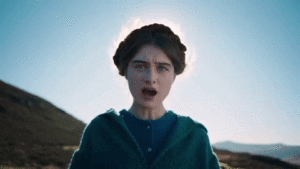
Jennifer’s Body
Erin Longbottom
Don’t let the 45% on Rotten Tomatoes fool you: Jennifer’s Body is feminist and darkly hilarious—and finally getting the credit it deserved. When this movie came out over a decade ago, it was universally panned, and I think we can pretty firmly blame that one on misogyny (and the lack of cultural taste in the late aughts—I lived through it, so I can say it). If you were culturally conscious at that time you probably also remember the somewhat universal hatred of Megan Fox (who plays Jennifer) for being… hot? We were still deep in media slutshaming in 2009, and Megan definitely got caught in the middle—as did Jennifer’s Body. On its face, it does seem like a movie made for the male gaze: hot girl becomes demonic succubus that feeds on teenage boys, nerdy best friend has to stop her. But that’s the point. It’s a commentary on the way women are punished for being sexual and having agency—and men almost never suffer any consequences for doing the same. Because in Jennifer’s Body, they are punished. By getting eaten. Cue the iconic line:
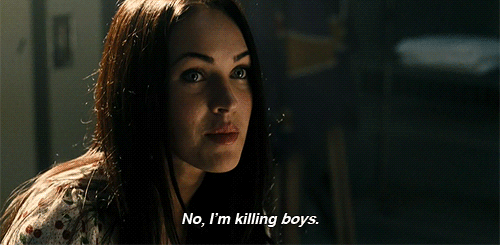
Jennifer’s Body is also very much about relationships between teenage girls, and the way they can be uniquely intimate, consuming, and borderline obsessive. If you ever had a bestie in high school that you could not live without, you probably know what I mean. And if you’re sapphic, you’ll definitely know what I mean (and probably find the kiss scene disturbingly relatable). Jennifer’s Body is such a gem of a movie that gets dismissed for what’s on the outside—ironic! But if you want a critique of slutshaming, a hilarious parody of the aughts that still holds up, and some misandry-fueled cannibalism, Jennifer is your girl.
Scream
Selina Tran
This may be an obvious choice, but since the fifth installment of this iconic movie franchise was released this year, I’d like to bring it back to the OG that started it all. This movie is smart, it’s subversive, and it’s self-aware. It turned those sexist horror tropes on their head and made you question whether or not you really knew who was going to die next or even first, and if you really knew who the killer(s) were. In this movie, you don’t need to be a virgin to survive until the end. This movie is so self-aware that the main character Sidney Prescott (Neve Campbell) even mentions how she’s sick of sexism in horror movies. “They’re all the same,” she says. “Some stupid killer stalking some big-breasted girl who can’t act who is always running up the stairs when she should be running out the front door? It’s insulting.” IT IS! Sidney is the “final girl” we all want and who rarely existed before this movie. She’s smart, she can fight, and she controls her destiny; she doesn’t fall into the all too typical victim narrative of the other horror movies of the ’90s and before. She is a BADDIE. And more than that, this movie is full of strong, smart, capable women whose worth is not just in their bodies or their looks. These are genuinely well-written characters, not just bland women to be the object of the end of some sick psycho killer’s knife.


